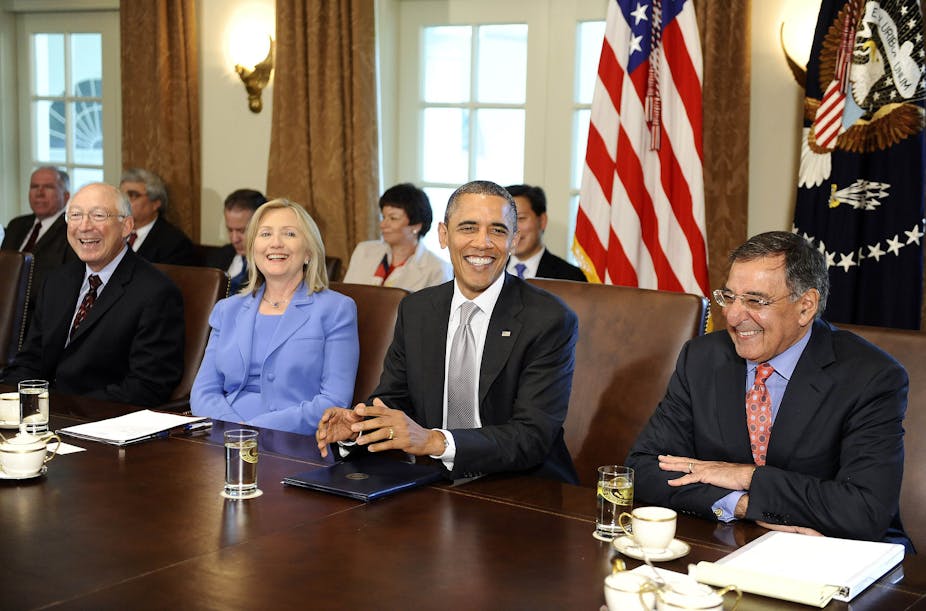“Most importantly it will allow us to avoid default and end the crisis that Washington imposed on the rest of America. And it will allow us to lift the cloud of doubt and uncertainty.”
President Barack Obama, speaking after Republicans and Democrats agreed to raise the debt ceiling in a five-to-midnight deal that avoided an unprecedented US default on its debt.
But as today’s global market carnage might indicate, was the deal too late? What are the longterm implications for economic policy?
In collaboration with ABC’s The Drum, we’ve asked four experts for their analysis of the repercussions of last week’s US debt crisis.
Remy Davison, Senior Lecturer in International Relations, Deputy Director of the Monash European and EU Centre, Monash University
“There was always going to be a deal, albeit at five minutes to midnight. But even a partial default by the US government would have derailed public services, spooked share markets and sent chills throughout the entire global financial system. Hold onto your hats: it’s going to be a hell of a ride.”
Timothy Lynch, lecturer in American politics, University of Melbourne
“Despite the apparent disgust of many Americans and the contempt held by many outside observers, US politics is supposed to look this way – at least sometimes.”
Tim Anderson, Political Economy, University of Sydney
“Whatever the short-term outcomes of President Obama’s conflict with Congress – which will continue despite this week’s deal – we will see continued devaluation of the US dollar, some discounting of US bonds and greater "real economy” impacts on countries with strong economic links with the US.“
Wendy Schiller, Associate Professor, Department of Political Science, Brown University, United States
"Given the public’s overwhelming reaction to the extended debt ceiling negotiations, it may be that the Tea Party members in Congress won in the short term, but their indifference to the economic reputation and stability of the US federal government may undermine their longer term goal of becoming a majority party in American politics.”

